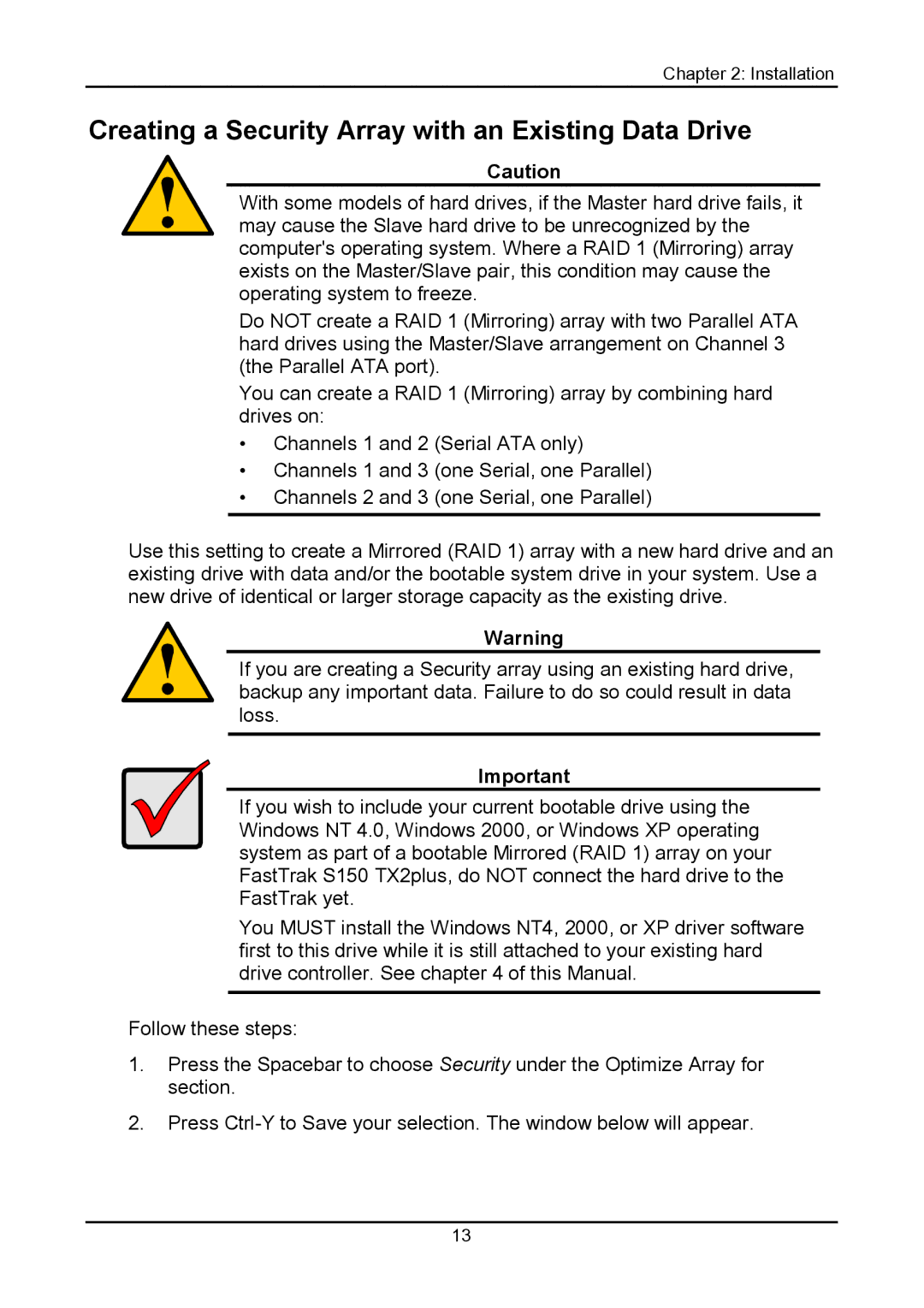
Chapter 2: Installation
Creating a Security Array with an Existing Data Drive
Caution
With some models of hard drives, if the Master hard drive fails, it may cause the Slave hard drive to be unrecognized by the computer's operating system. Where a RAID 1 (Mirroring) array exists on the Master/Slave pair, this condition may cause the operating system to freeze.
Do NOT create a RAID 1 (Mirroring) array with two Parallel ATA hard drives using the Master/Slave arrangement on Channel 3 (the Parallel ATA port).
You can create a RAID 1 (Mirroring) array by combining hard drives on:
•Channels 1 and 2 (Serial ATA only)
•Channels 1 and 3 (one Serial, one Parallel)
•Channels 2 and 3 (one Serial, one Parallel)
Use this setting to create a Mirrored (RAID 1) array with a new hard drive and an existing drive with data and/or the bootable system drive in your system. Use a new drive of identical or larger storage capacity as the existing drive.
Warning
If you are creating a Security array using an existing hard drive, backup any important data. Failure to do so could result in data loss.
Important
If you wish to include your current bootable drive using the Windows NT 4.0, Windows 2000, or Windows XP operating system as part of a bootable Mirrored (RAID 1) array on your FastTrak S150 TX2plus, do NOT connect the hard drive to the FastTrak yet.
You MUST install the Windows NT4, 2000, or XP driver software first to this drive while it is still attached to your existing hard drive controller. See chapter 4 of this Manual.
Follow these steps:
1.Press the Spacebar to choose Security under the Optimize Array for section.
2.Press
13
